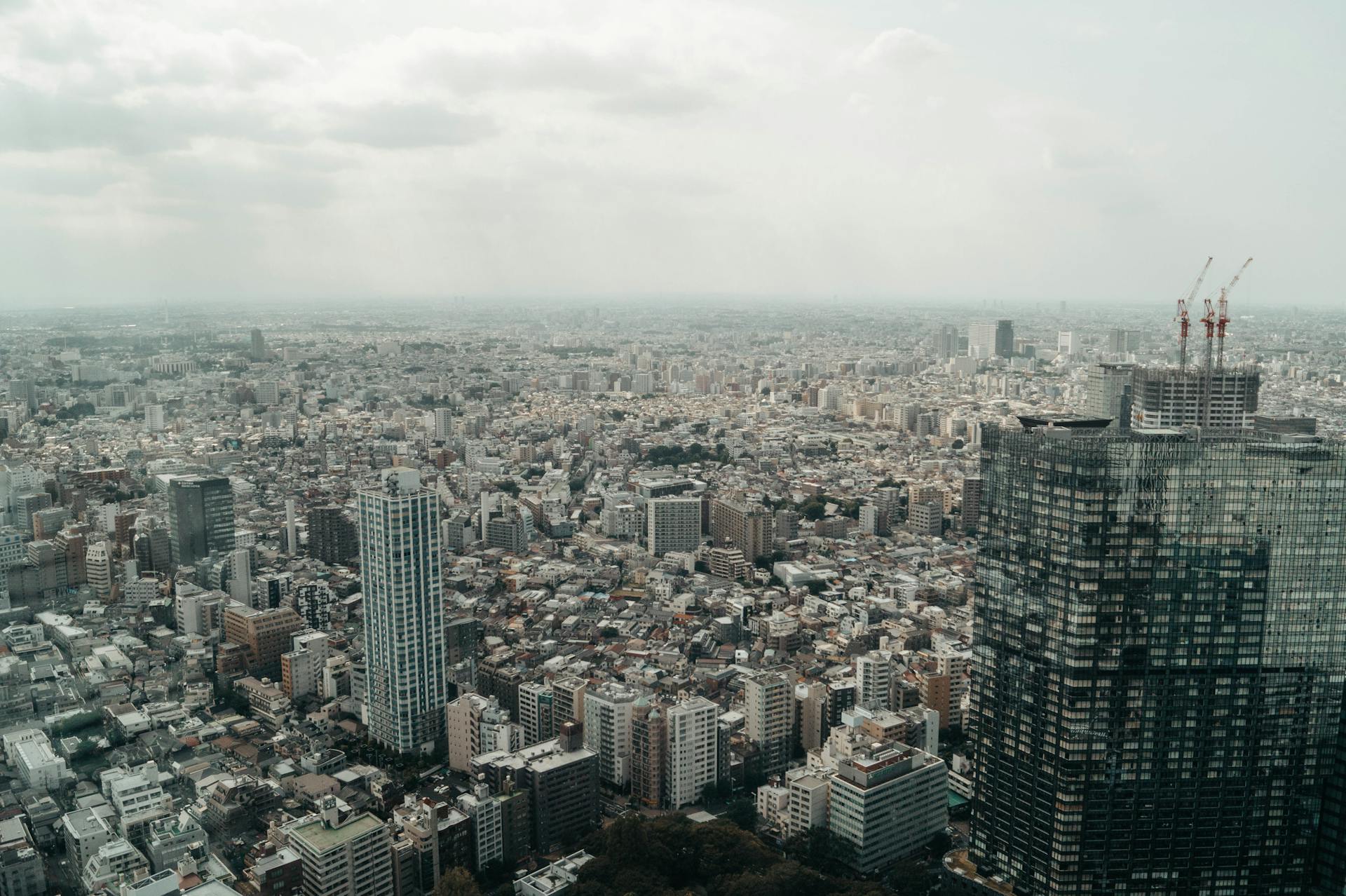In today’s Tokyo, cities are no longer planned. They are envisioned. Or perhaps imagined. More precisely: evoked. Architecture has become secondary to language, and language itself has drifted from information into abstraction.
As overseas investors flood the market and land values climb ever further into the absurd, Japan’s developers face a problem: how to sell properties that can no longer be described with rational adjectives. The answer: poetry. Specifically, slogans that breathe, pulse, shimmer, or “expand softly into the heart of possibility.”
And so, without ceremony but with significant branding budgets, the Urban Development Poem Championship™ has begun. Not poetry in the literary sense, but in the peculiar dialect of Japanese real estate ads: phrases composed to evoke mood without meaning, where commas outnumber verbs and “value” breathes.
Whether the industry recognizes it as such is irrelevant. It is happening. And the entries are transcendent.
Developer Aspirations: “Our Words Build Worlds”
Behind every submitted poem lies a statement of ambition. Developers were invited to comment on their creative process, what this competition means to them, and why verbal architecture might just be the future.
Marusan Holdings, a flagship developer known for converting industrial zones into “sustainable lifestyle corridors,” offered this: “We worked closely with our Strategic Atmosphere Division to ensure our poem reflects the unspeakable synergy between access and aspiration. It took 12 months, 47 stakeholder interviews, and a mood board featuring three shades of fog. This slogan isn’t just branding, it’s an echo chamber we built ourselves.”
Tōgen Realty, a mid-sized company famed for their suburban luxury high-rises named after imaginary European towns, wrote: “Our poem emerged during a spiritual offsite in Karuizawa. The words arrived unbidden, like wind through curated hedges. Winning this contest would affirm what we’ve always known that resonance sells better than concrete. Our copywriter cried while writing it. We haven’t asked why.”
Novea Urban Systems, a newcomer that recently trademarked the phrase “geo-emotional living,” shared the backstory behind their entry: “We didn’t write the poem ourselves. We held a closed competition between three lifestyle influencers we found on Instagram. One’s a minimalist nail artist, another runs a moss-themed bakery, and the third speaks only in affirmations. Their captions were converted into slogan drafts by our brand assistant tools. After several rounds of mood-based voting, one line emerged as radiant. It felt like sunlight, but encrypted. So, we used it.”
None addressed zoning, building permits, or livability. But each expressed profound hope that their words might one day be mistaken for truth.
The Entries: Where Breath Becomes Skyline
The official contest site now hosts a public gallery of the submitted poems, open for voting. Each phrase is presented alongside its English translation, or as close to a translation as reality permits.
| Company | Japanese Line | English Rendition |
|---|---|---|
| 星月開発 | 「明日が、空へ開く街」 | “A city where tomorrow opens into sky.” |
| 栄真プロパティ | 「住まいは、時とともに歌になる」 | “The home becomes a song over time.” |
| ミレニア不動産 | 「価値は触れないから、深い」 | “Value is deep because it cannot be touched.” |
| 東央地所 | 「都市が、心を持つとき。」 | “When the city gains a heart.” |
| 嶋井組 | 「願いが、日射しに、やさしく転写される」 | “Wishes softly transcribe into sunlight.” |
Each entry is assigned a Translatability Failure Index (TFI), a proprietary metric designed by the editorial committee to measure how well meaning survives through machine translation. High TFI scores are prized.
Most poems begin with abstraction, pivot through an anthropomorphic moment, and close with a spatial metaphor. Some include commas in places that defy both grammar and sanity. Others have no punctuation, but claim to “evoke rhythm” through font choice.
The Judging Panel: Beauty Without Burden
A selection committee was unofficially assembled to comment on entries and provide feedback (regardless of whether it was solicited). Among them, renowned architect Shigure Hanzō, best known for his glossy concrete towers that are functionally unusable but visually arresting, published a brief but stirring statement:
“In architecture, we have long known that usefulness is a prison. These slogans liberate us. They are untethered from logic, from context, from the weight of clarity. Their refusal to mean is precisely their elegance. I applaud this movement toward architecture made from mist.”
Other judges include:
- A Tokyo Metropolitan Urban Planning official, who quietly applauded the initiative as “symbolically enriching, yet technically nonbinding.”
- A copywriter intern, who anonymously admitted, “I made three of these. I don’t know what they mean, but they sound like they’re not meant to be questioned.”
Public Voting Now Open: You Decide the Vibe
General readers are now invited to vote for their favorite entry. Criteria are as follows:
- Emotional resonance
- Aspirational drift
- How well it would work as a name for a lifestyle-themed café
- How confused you feel after reading it
A slider-based voting interface lets users rank each slogan from “whimsically vacant” to “profoundly cryptic.” Multiple votes allowed. No login required and no meaning necessary.
Grand Prize Pending: Suspense as Urban Strategy
Final results will be announced sometime this fiscal year, pending jury consensus or interpretative collapse. The winning poem will receive a bronze plaque placed somewhere near an escalator, a mention in at least one internal PPT presentation, and a chance to become the naming concept of a mixed-use tower no one can afford.
Until then, Tokyo continues to be developed and so does language. One breathy, shimmering, syntactically unstable metaphor at a time.




